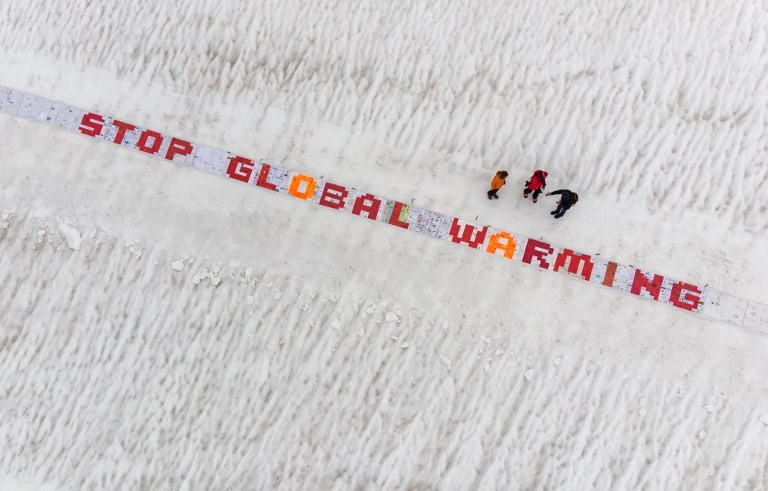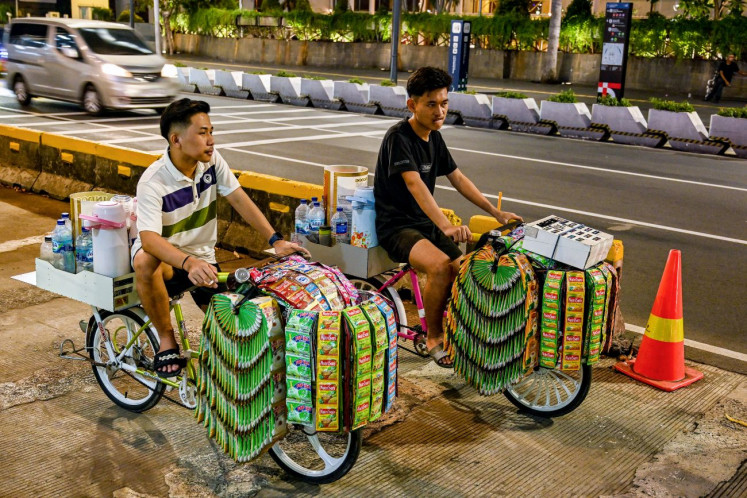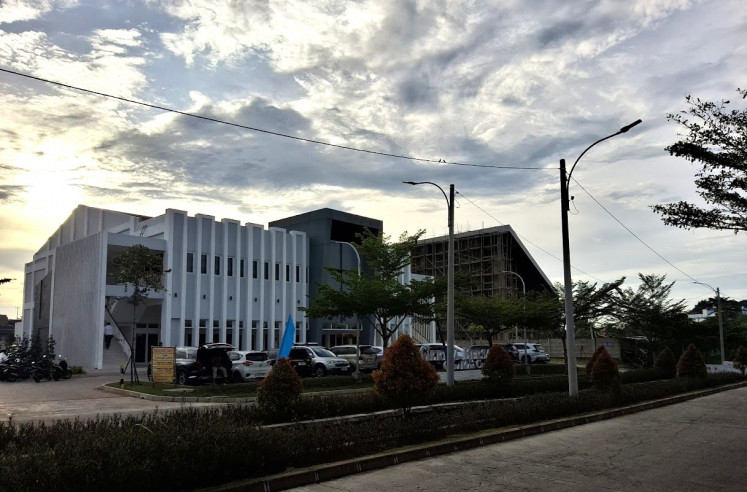Popular Reads
Top Results
Can't find what you're looking for?
View all search resultsPopular Reads
Top Results
Can't find what you're looking for?
View all search resultsClimate conference has our future at stake
Somewhere in the world is a place where our future is being decided: In Poland, where the Katowice Climate Change Conference is well underway. It has brought together 30,000 delegates from 195 countries.
Change text size
Gift Premium Articles
to Anyone
S
omewhere in the world is a place where our future is being decided: In Poland, where the Katowice Climate Change Conference is well underway. It has brought together 30,000 delegates from 195 countries. Among them is a respectable Indonesian delegation of almost 600 government officials and state legislators, scholars, businessmen and journalists, with four ministers at the helm.
Coordinating Maritime Affairs Minister Luhut Pandjaitan, Environment and Forestry Minister Siti N. Bakar, Maritime Affairs and Fisheries Minister Susi Pudjiastuti and National Development Planning Minister Bambang Brodjonegoro are among the leaders negotiating the agreement on the future of our planet.
The conference’s main aim is to adopt a package of guidelines to implement the Paris Agreement work program, which will manage emission cuts starting in 2020. Multilateral climate negotiations have always been difficult, because of the political and economic interests of various players that are at stake.
The Polish presidency is going out of its way to ensure that the final package takes into account all issues. Apart from this, the Katowice conference also pertains to the political phase of the Talanoa Dialogue, which brings together civil society, governments and companies.
The Polish presidency aims to lend its political weight to three themes that are key to successful climate action: technology, nature and people. A separate ministerial declaration will be adopted on each of these themes; Indonesia is supporting all of them.
But it is vital to lead not by declarations only, but rather by example. Here, Poland is doing its part.
In technology, Poland is making efforts to introduce low-emission public transport. In 2018, our government introduced the Clean Transport Package, a set of laws to popularize low- and zero-emissions vehicles. The domestic industry is catching up with the projected demand. Polish manufacturers are producing electric engines, charging stations and lithium-ion batteries.
Indonesia, too, seems interested in joining the electric transport revolution. It has become co-sponsor of the political declaration on electromobilty. Poland is ready to assist Indonesia in the future with the know-how to make public transportation greener.
Nature, if left to itself, has an incredible ability to correct human mistakes. Forests, in particular, are filters that absorb greenhouse gases. They need to be managed in a sustainable way. Poland leads in this respect, planting 500 million trees annually. It has also introduced the Forest Coal Farms project, which aims to achieve balance between emissions and CO2 absorption by innovative forest management solutions.
Finally, there is the human dimension that cannot be overlooked in the fight against climate change. A natural consequence of the effective implementation of the Paris Agreement is groundbreaking technological changes. This will disrupt many high-emission industries and cause the loss of jobs. It is instrumental that the people affected are retrained and are given new jobs in newly created clean sectors. A just and fair transition to a greener future is needed to ensure sustainable trust in the climate action.
Poland makes the point that green transition is not only necessary, but also achievable. Katowice, the conference venue and the center of coal excavation, is an example of such successful transition.
Only 30 years ago, factory smokestacks were an integral part of the cityscape. Today, Katowice is one of Poland’s greenest cities, with forests covering over 40 percent of the city area. This proves that change is possible. To save our planet, the change simply needs to be more sustained and communal; that is, implemented by all countries.
I am sure Indonesia treats this challenge seriously and is ready to join.
***
The writer is the Polish Ambassador to Indonesia.











